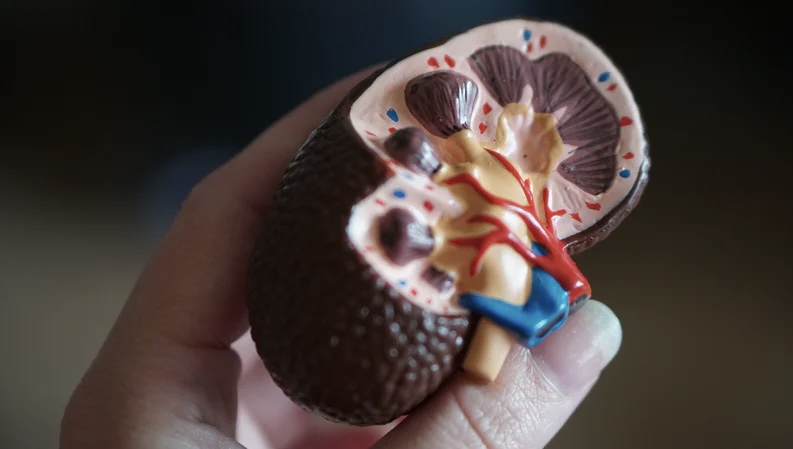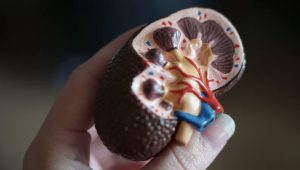
Kidney stones can be incredible painful.
More on that in a moment.
Have you noticed that I include posts about non-estate planning matters on this blog?
Even I need a break from thinking about estate planning, having prepared some 3,000 plus plans.
So, thank you for bearing with me, from time to time, as I explore health and wealth issues that appear on my radar screen.
Now, back to the subject at hand for today: kidney stones.
Disclosure: I have never experienced passing a kidney stone.
However, clients who have given birth tell me that passing a kidney stone is even more painful than childbearing, without the reward of a "little bundle of joy" after it is over.
Yikes!
Some people are more prone to certain ailments than others.
So it is with kidney stones.
According to the National Institute of Diabetes and Digestive and Kidney Diseases (NIDDK), about 11 percent of men and 6 percent of women get kidney stones.
Some individuals pass their stones completely unaware that it is happening, while others have more severe symptoms like a heightened urge to urinate, blood in urine, or mild or excruciating pain in their back or groin.
According to a recent AARP article titled “What to Eat to Prevent Kidney Stones — and What to Avoid,” genetics and lifestyle can impact the likelihood of developing kidney stones.

What people eat can influence whether they develop kidney stones.
Jobs like teaching or driving trucks can make people more prone to kidney stones because they are able to hydrate less frequently.
Similarly, medications such as calcium-based antacids and diuretics can increase the chances of stone development.
Although you may be unable to change your genetics or your job, you can make dietary changes to help reduce the risk of this ailment.
What can you do?
Drink plenty of water.
Proper hydration can reduce the risk of kidney stones significantly.
You should drink between 60 to 80 ounces each day.
Depending on your risk factors, you may require more.
When you urinate, the color should be closer to clear rather than orange, yellow, or brown.
Reduce processed and high-sodium foods.
Does your urine have a high calcium content?
If yes, you should reduce the amount of salt in your diet.
Why?
Salt increased calcium excretion in urine.
To reduce your sodium intake, you can minimize your consumption of processed foods like chips, crackers, and frozen meals.
Add milk, cheese, and yogurt to your diet.
Although you need calcium, you should not resort to simply taking supplements.
You should consume foods high in calcium.
Doing so reduces the likelihood of calcium stones.
Calcium stones are the most common forms of kidney stones.
Unlike foods with calcium, calcium supplements can actually increase the risk of developing kidney stones.
Supplements with vitamin C and vitamin D can also increase the likelihood of kidney stones.
Add lemon and lime juice to your drinks.
Citrate is a natural inhibitor for kidney stones.
By chelating calcium, it prevents the calcium from bonding to something else.
Limes and lemons both contain citrate.
Eat plenty of fruit.
Fruits have high fiber and water content.
They also are more alkaline and have high levels of citrate and magnesium.
All of these properties benefit the prevention of kidney stones.
Watch eating leafy green vegetables, rhubarb, beets, and sweet potatoes.
Although these foods have significant health benefits for the heart, the high oxalate content can prove problematic.
Oxalate is both naturally occurring and linked to the formation of kidney stones.
By including loan-fat dairy at the same time you consume foods high in oxalate, you could offset the effects through introducing calcium.
The calcium and oxalate will bind and remain in the stool rather than leach into the blood and urine.
Eat less animal protein.
"Purines" lead to greater excretion of uric acid.
Uric acid stones can results.
Although you do not need to eliminate all animal protein, you should aim for six ounces of lean meet each day.
Limit your iced tea, sodas and soy or almond milk.
Sodas are made bubbly through phosphoric acid.
This increases the risk of kidney stones.
Dark sodas are the worst in regard to phosphoric acid.
Although pale sodas like ginger ale are better, the high sugar content can increase the amount of calcium in urine.
Sugar can also lead to metabolic syndrome, poor cholesterol, and diabetes.
Tea, soy milk, and almond milk are high in oxalates.
Although you may be more prone genetically to kidney stones, you can make wise dietary choices to reduce their risk of development.
Reference: AARP (Jan. 4, 2022) “What to Eat to Prevent Kidney Stones — and What to Avoid”
REMEMBER: “The choice of a lawyer is an important decision and should not be based solely upon advertisements.”
This statement is required by rule of the Supreme Court of Missouri.
